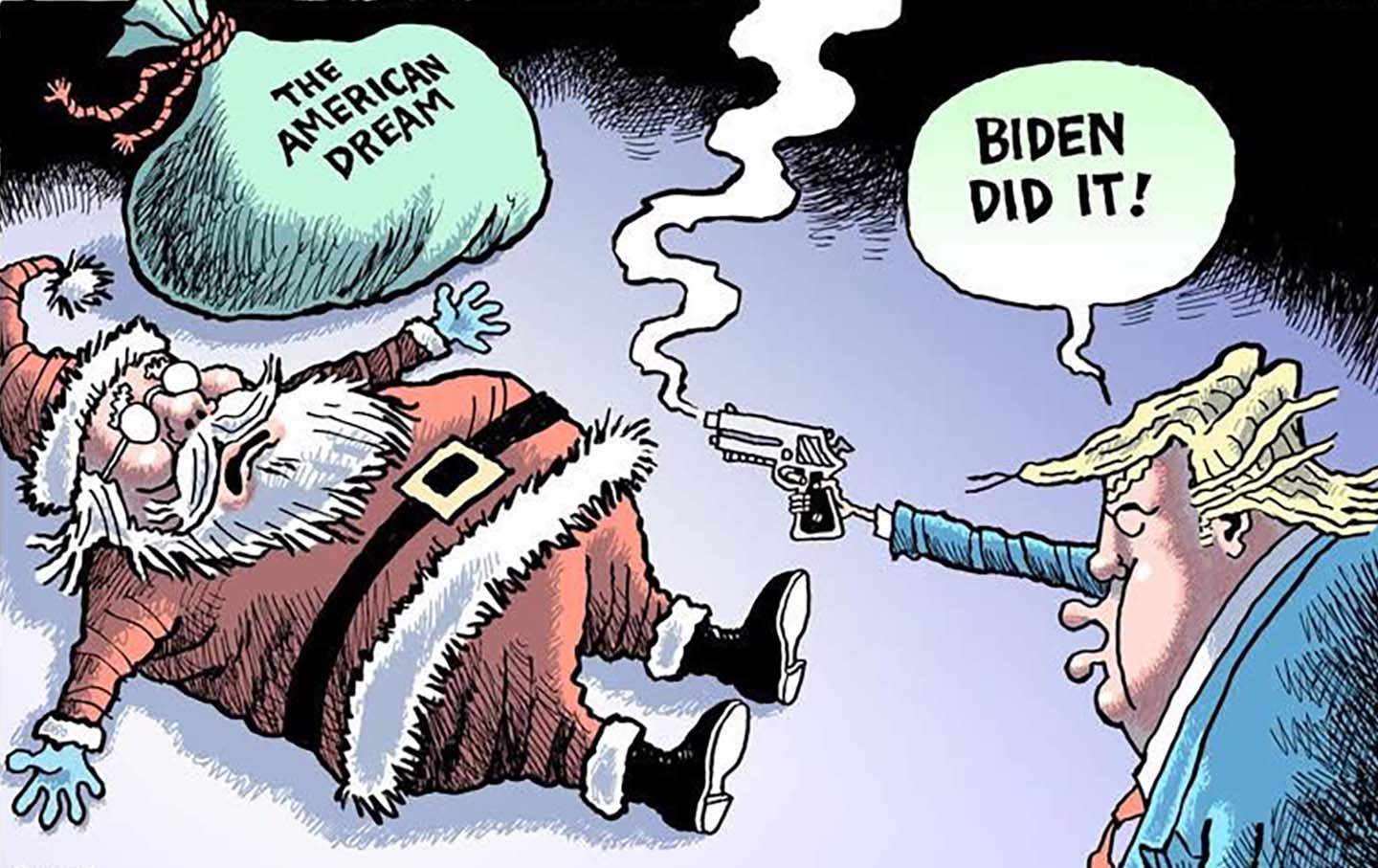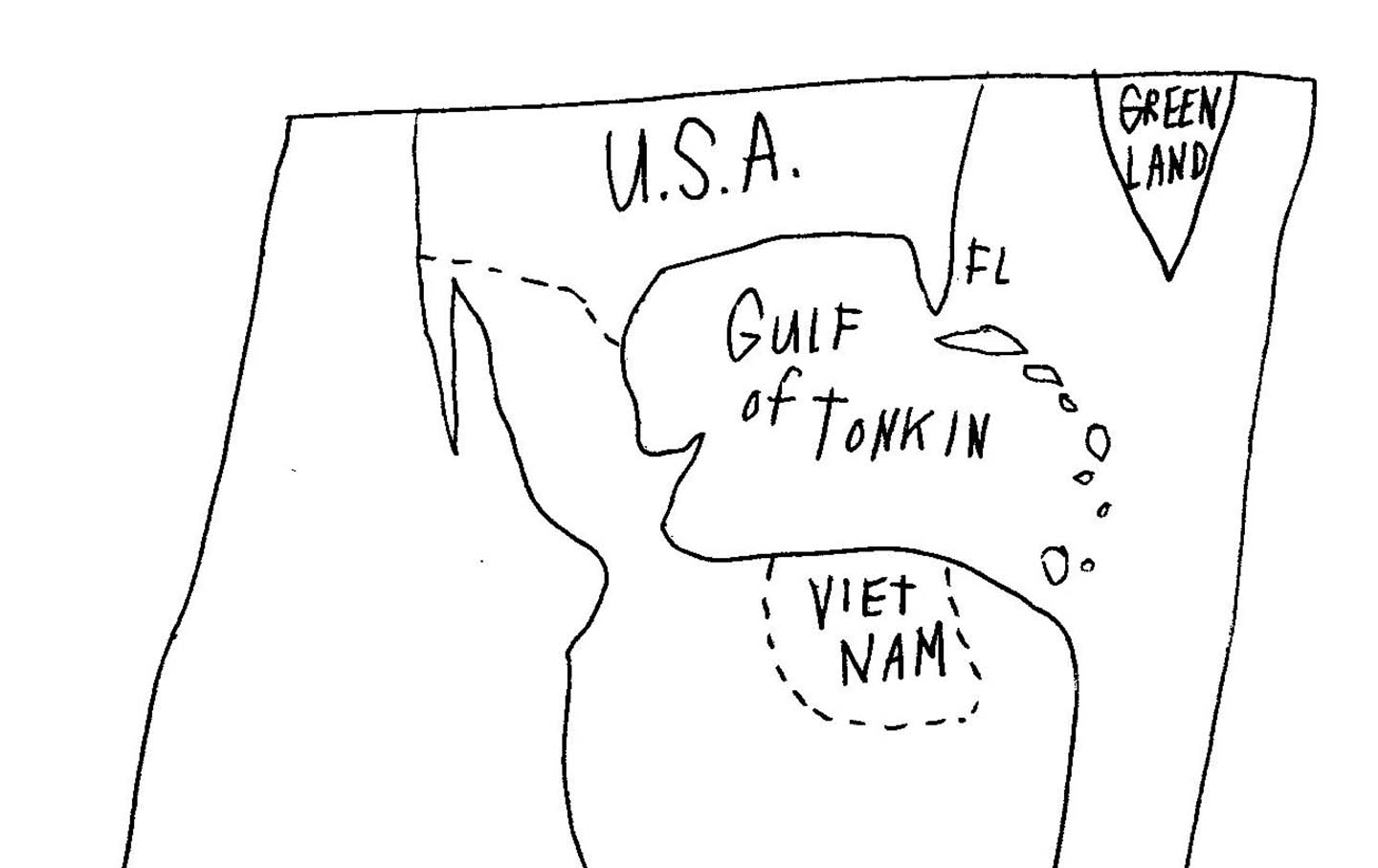The Creed
How did Americans come to worship the Constitution?
Can the Constitution Save Us?
The Constitution is often invoked as a safeguard for American democracy, but does it more often get in democracy’s way?
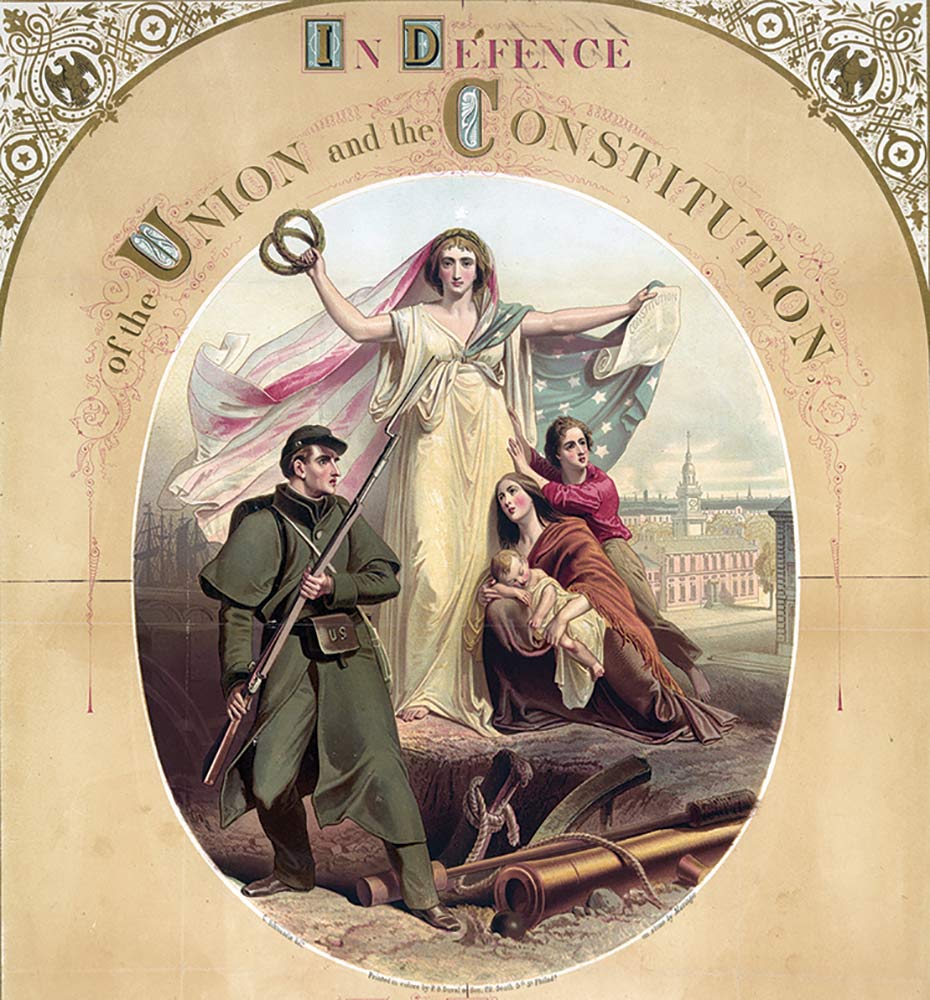
The Supreme Court has taken a political beating lately over its rulings on abortion, guns, and affirmative action. Yet even liberals who attack the court tend to aim at these decisions and the justices who issued them, not the institution itself. More often than not, they accuse the Roberts court of betraying the Constitution and the legacy of earlier, more liberal justices. The Constitution itself remains a source of justice and guidance—at least in the hands of the right interpreters.
Yet there are cracks in this structure of liberal feeling. It is common knowledge that under the Electoral College system created by the Constitution, Donald Trump won the presidency in 2016 even though he’d lost the popular vote, and that the Constitution apportions US Senate seats in a way that weakens the bigger states and empowers the smaller ones. Still, for most liberals, these problems elicit only a momentary disorientation, which is quickly followed by a return to faith in the Constitution as the keystone of the country and the safeguard of American democracy.
Books in review
The Constitutional Bind: How Americans Came to Idolize a Document That Fails Them
Buy this bookIn his fascinating and powerful new book, The Constitutional Bind, Aziz Rana calls this faith in the Constitution’s essential goodness “creedal constitutionalism” and urges Americans to reject it, perhaps along with major parts of the Constitution itself. His book is much more than a progressive critique of Constitution worship: Rana presents a sweeping history of constitutional politics from the late 19th century to the present that reverses much of what Americans have learned to accept about the Constitution’s meaning. He portrays creedalism as a relatively recent phenomenon, a product of the 20th century, and contends that putting the Constitution at the center of American civic culture has abetted authoritarian and repressive agendas as much as it has upheld civil libertarian or democratic ones. And against the assumption that the Constitution is purely a domestic matter, he finds key moments in our constitutional culture developing through the United States’ imperial adventures and geopolitical contests.
Rana also proposes an alternative constitutional politics—one that draws from the history of progressives, populists, labor organizers, socialists, communists, and Black and Indigenous activists and thinkers who have contended that for Americans to be free, they must transform or even entirely overcome the Constitution. This idea has taken many, mutually incompatible forms—which have been embraced everywhere from the centers of power (by figures as varied as Woodrow Wilson and Felix Frankfurter) to the forgotten margins—but at its center has always been the ambition to restore the power of self-rule to the living over the antidemocratic dogmas of an old text.
American history, the liberal creedalists contend, has been one long unfolding of freedom and equality, a saga in which the Constitution has always played a central role. Before the Civil War, the Constitution was less the governing law of the land than a prophetic text—a symbol of national striving toward what its preamble calls “a more perfect union.” In the run-up to the war, this symbolic role was invoked by Abraham Lincoln and the Republicans, who sought to make “freedom national,” and was infused with the radicalism of the Declaration of Independence.
After the Civil War, according to the creedal story, the Reconstruction amendments—the 13th, 14th, and 15th, adopted between 1865 and 1870—helped make good on this promise, enshrining the principle of equal national citizenship (for men) in the document. The Constitution was now aligned with the Declaration of Independence in holding that all are created equal. Since then, the struggle has been to make that principle real. Jim Crow almost snuffed it out, and in 1896 the Supreme Court upheld segregation in Plessy v. Ferguson. But one justice, John Marshall Harlan, kept the creedalist faith alive in his dissent, insisting, “There is no caste here. Our Constitution is color-blind, and neither knows nor tolerates classes among citizens.”
The light of this lone candle spread until, in 1954, the Supreme Court unanimously held that segregation in public schools was unconstitutional and proceeded to rule against almost all forms of official public segregation. Congress soon took the cue and passed the Civil Rights Acts of 1964 and 1968 and the Voting Rights Act of 1965. America was finally becoming what it was always meant to be, an achievement won not only through struggle but also through the true self-interpretation of its own history and, especially, its own fundamental law, the Constitution.
Here the creedal story fragments. Barack Obama’s presidency and Lin-Manuel Miranda’s Hamilton offered glimpses in the first decades of the 21st century of a country where, for the first time, people of color might embody the nation itself, both in the White House and in the perennial retelling of the founding. Meanwhile, a conservative creedalism emerged, and as the Supreme Court became more and more conservative, the Constitution’s essential liberalism was obscured. From the protection of corporate campaign spending in 2010’s Citizens United to the weakening of the Voting Rights Act in the 2013 Shelby County decision to the overruling of Roe v. Wade in 2022, the document that liberals venerated was now being pressed into service to undo the touchstones of 20th-century liberalism. For creedal liberals, the conservative uses of the Constitution posed a quandary: Right-wing originalism and traditionalism, like liberal creedalism, revered the Constitution. Were the rulings of the conservative court not also the work of the Constitution and the result of its veneration? Whose Constitution was the true one?
Rana believes that the liberal creedalists are wrong about the Constitution’s place in American history —and, further, that they don’t even know the history of their own creed, which he traces to empire abroad and wartime mobilization at home. As Rana notes, far from treating the Constitution as a font of hope and progress, until the 1950s many reformers and radicals considered it obvious that the Constitution and the Supreme Court were antidemocratic institutions to be opposed, reformed, or even overcome in the service of American democracy. Just as fundamentally, the very idea that the Constitution represented the spirit of the country would have been out of place in the first 100-plus years of American history. The Constitution was viewed not as the emblem of civic faith, but as a practical framework that, for better or worse, gave the individual states room to set up political societies to pursue what really mattered to them—including slavery and Jim Crow.
The Reconstruction amendments were the great exception to the rule, and even their guarantees of equal rights for all Americans were soon drained of egalitarian promise. At the turn of the 20th century, the 14th Amendment’s assurance of “equal protection” was sunk by the Supreme Court’s segregationist ruling in Plessy v. Ferguson, while its guarantee of “due process” was celebrated by capitalists because the court used it to strike down laws for workplace safety, minimum wages, and maximum weekly hours. For this reason, many turn-of-the-20th-century populists, socialists, labor activists, and progressives, including a young Woodrow Wilson, did not hesitate to call the 18th-century Constitution a hobble on the reforms that a modern society needed; they wanted to replace James Madison’s tired machinery with something more like the British Parliament.
So how did the creedal myth become the common sense of American politics? Why did so many come to accept that the Constitution emancipated Americans and empowered them to create a more equal society when, in fact, it was often an impediment? Here Rana offers a surprising and unsettling history of creedalism itself: He argues that this constitutional veneration began not at the founding of the United States but rather as a rationalization of US empire in the Philippines, Cuba, and other territories that the United States claimed from Spain after the brief, lopsided Spanish-American War of 1898. The Republican foreign policy establishment found itself under political attack for its naked imperialism, and to defend the country’s new adventures in empire-building, it seized on the idea that the United States was a unique kind of empire—an empire of liberty that offered nation-building in the service of ultimate self-determination. The Constitution was key to their case for American exceptionalism: A charter of self-government and the rule of law, it both prevented tyranny at home and offered a model for colonized societies to become self-ruling.
This constitutionalist defense of American empire did not gain much traction at the time, but it entered the ecosystem of ideas, where it soon proved useful to a new constituency. When the United States entered World War I, liberal veneration of the Constitution provided the principled face of militarism. Woodrow Wilson, who had once denounced the Constitution as a fetter on democracy, now embraced it. The Constitution, he argued, made the United States a unique beacon for a new age of national self-determination that would be won through American victory in the war. Loyalty to the Constitution became, for the first time, an engine of mass mobilization, as quasi-military “preparedness” organizations rallied Americans to their patriotic duty with calls to defend constitutional principle. The coalition for this pro-war constitutionalism extended as far as the more than 4 million members of the second Ku Klux Klan.
As they had during the Spanish-American War, creedalists trumpeted liberty while also rationalizing its suppression, this time at home. In the heat of Wilson’s pro-Constitution mobilization, Congress passed the country’s first political-crimes legislation since the 18th century and prosecuted some 2,000 dissenters, mostly for speech deemed disloyal to the American order. Eugene Debs, who had won nearly a million votes running for president in 1912, was sentenced under this legislation and ran his 1920 presidential campaign from prison. The liberal veneration of the Constitution proved to be imperfectly liberal, and all too useful as a rationale for authoritarian nationalism.
These contradictions survived into the heyday of New Deal liberalism. Franklin Roosevelt’s 12 years in the White House, spanning the Great Depression and World War II, brought a more egalitarian creedalism that sought to uplift many. But the Roosevelt administration, like its predecessors, also found illiberal uses for the creed.
Like Wilson before him, Roosevelt came into office surrounded by reformers who saw the Supreme Court and constitutional limits on federal power as barriers to democracy and progress—a view that seemed amply confirmed when the court struck down key aspects of early New Deal legislation. But after Roosevelt declared political war on the court in the name of democracy and pushed for legislation to add new justices favorable to his programs, the court backed down, and Roosevelt and the New Dealers began to develop a creedal politics useful for their own interests.
With the country at war again in 1941, Roosevelt reached back to the Wilson administration’s creedal patriotism. He and those around him framed the Constitution in a new way: as the antithesis of totalitarianism, a charter of personal liberty anchored in the Bill of Rights that would protect the speech and assembly rights of labor activists, dissenters, and religious minorities and that included immigrants in its requirements for fair treatment. But this new anti-totalitarian Constitution did not stop Roosevelt from interning Japanese American citizens. The Constitution became a symbol of national identity, but partly for this reason, it could also rationalize the ill treatment of those who were not “real Americans.”
Roosevelt’s constitutionalism was more political than legal. For him, the document was not a piece of legal language but a vessel of national continuity into which each new generation’s projects could be poured. But the eight Supreme Court justices that Roosevelt appointed during his lifetime changed the law profoundly, and they did so long after his death. At first, the court cleared out the laissez-faire jurisprudence that had blocked New Deal reforms, thereby empowering Congress and state legislatures to pass social and economic regulation. Then the justices took a quite different turn, repurposing judicial review for mid-century liberalism. In the 1950s and ’60s, the court’s liberal majority set out to expand the rights of free speech, voting, anti-discrimination, due process, and personal privacy, ultimately reaching its decision in Roe v. Wade even as the court passed into conservative hands again under Richard Nixon. Liberals came to see the Constitution as a much more judicial document than FDR ever had, one whose meaning came not from new generations of politics but from how the Supreme Court could interpret and transform it.
Popular
“swipe left below to view more authors”Swipe →This kind of constitutional nationalism is what many contemporary Americans grew up absorbing without even knowing it. It is a vision of the Constitution that is liberal, even progressive, but also subtly antidemocratic. It rejects any structural reform of the Constitution to empower living majorities, such as reducing barriers to legislation, limiting the Supreme Court’s power, and making amendments easier. It presupposes that our Constitution is an exemplary democratic document—contrary to what so many of its neglected critics have insisted—and that, in the hands of discerning judges, it has made the country more equal.
As the Cold War settled in, with its intense anticommunism at home as well as abroad, liberal creedalists often praised the Supreme Court as a bulwark of freedom, contrasting it with Soviet authoritarianism even as the federal government carried out millions of “loyalty” inquiries into the beliefs of public employees. And creedalism proved resilient even as the landscape of power and ideology shifted in the 1960s and ’70s. Then, in the 1980s, conservatives made constitutional reverence their own by embracing an originalist and traditionalist jurisprudence that was designed to roll back Roe and other liberal gains. Although liberals understood this new conservative jurisprudence as the antithesis of everything they prized, originalism could flourish, Rana argues, only because liberals had provided the conditions it needed: founder worship, constitutional veneration, and the Supreme Court’s role as constitutional oracle.
As the 21st century began, the War on Terror replayed the founding tragedy of creedalism, combining a willfully naïve story about the Constitution as a blueprint for turning military occupation into democracy (this time in Iraq) with scaremongering rationalizations of surveillance and repression at home, all in the name of securing freedom.
Since it is important to his story that many anti-constitutionalist radicals ultimately adopted creedalism, Rana might have delved more deeply into its attractions and inner life. Rana tells us that there were “real benefits” to these accommodations and that quite a few progressives judged that totalitarianism abroad might be a reason to adopt more traditional liberalism at home. But we don’t learn much about what it might have felt like to fasten your own principled dissent and radical hopes to a story about the essential goodness of a country that you also believed was deeply compromised. Some were bullied into it, some did it to barter for power, but the great interest of a creed is that it can command conviction.
Also, apart from the radical dissenters he admires, Rana’s picture of American politics can be a bit too unremittingly dour. For instance, he describes white Americans’ attitudes for and against imperialism in the Philippines as split between a racist enthusiasm for empire and a racist fear that empire would bring in non-white subjects and citizens and migrants into the American order. But this was not always the case: William Jennings Bryan, who sounded those latter xenophobic notes, nonetheless based his denunciation of imperialism squarely on the right of all peoples to self-determination, and Mark Twain, among the country’s most popular writers, excoriated imperialism not because of a fear of nonwhite immigrants but because, he insisted, it was a racket, its “civilizing mission” just the patter of a crooked salesman. Rana’s pointed observation that authoritarian actions like the internment of Japanese Americans and the surveillance of citizens in the War on Terror were rationalized as defenses of the Constitution also gives short shrift to the ways that dissenters drew on the Constitution in pushing back against such actions: Civil libertarian principles didn’t stop Roosevelt’s xenophobic overreach, but they did create a field of argument in which Supreme Court justices and far-sighted civic leaders could denounce the internments and clear the way for their repudiation. The degree of pessimism that an honest account of history requires is an important question, because, as we shall see, it bears directly on deciding which aspects of American political history need to be overcome and which might still be resources for progress.
Rana is more sympathetic to the convictions of another set of characters, the dissenters who criticized or even rejected the Constitution in favor of deepening democracy in the United States. For him, these are the civic ancestors we should emulate today.
In Rana’s telling, these anti-creedalist dissenters were once a kind of mainstream. In the Gilded Age and its aftermath, many progressive and socialist reformers, populists, and labor activists regarded the anti-majoritarian, court-empowering Constitution as a barrier to effective democracy. Their main disagreement was whether to work within the existing constitutional framework or seek to reshape or even replace it. Some sought structural amendments to empower majorities or even a new constitutional convention to erect a genuinely democratic government. (One structural amendment was passed in 1913 to provide for the popular election of US senators, who had previously been appointed by state legislatures.) For others, who approached constitutional revision more warily, the very conditions that underscored the need for change—class conflict, political violence, hostility among regions—also made it too dangerous. For them, the question was how to make the existing text and institutions more responsive to majority sentiments.
Rana vividly depicts the debate over the Constitution among socialists at the turn of the 20th century—and in particular the split between Debs’s Socialist Party of America, which aimed to put workers in the saddle by working within electoral politics (including pushing for pro-democracy change to the Constitution itself), and the Industrial Workers of the World, who favored a revolution that would replace the state with workers’ self-rule, which would be at once more local (in factories, regions, and industries) and more cosmopolitan (workers without borders). Rana also discusses some fascinating minor notes in non-creedal American radicalism, including the fleeting calls in the 1920s for “Indian Communism” on Native lands, which sought to combine tribal self-government with workers’ cooperatives, and the Communist Party’s vision of a revolutionary and self-determining territorial government composed of agricultural workers in the Black Belt of the Mississippi Delta.
Rana devotes some of the book’s most sustained and admiring attention to Black radicals in the 1960s and ’70s, particularly the role of the activist Afeni Shakur in the 1970 Black Panther–led Revolutionary People’s Constitutional Convention in Philadelphia. This gathering produced drafts of a constitutional text for a post-revolutionary United States, including programs for Indigenous self-determination, international reparations for imperialism, the abolition of the standing army, a ban on US intervention abroad, a generous welfare state, and the replacement of police with teams of community members.
Rana stresses that the Panthers’ constitution was part of an effort to build a coalition beyond Black radicals by proposing new terms of collective life for everyone. Yet he does not tell us much about how the participants understood their constitution as a matter of practical politics, though he does make it clear that the Panthers combined hostility and suspicion toward state power with the premise that there would be a state legitimate enough, and powerful enough, to rework the economy much more fundamentally than the New Deal had done. The Panthers’ indifference to what Rana calls “procedural demands” such as electoral reform almost certainly reflected a fissuring ambivalence toward American democracy: While they understood themselves as an outcropping of the global non-white majority, they had no realistic prospect of appealing to any American majority. Indeed, as Rana emphasizes, they regarded the United States as foundationally illegitimate because of the history of slavery and Indigenous dispossession. But this stance created its own contradictions: The Panthers oscillated between a political program of self-rule (by internal majorities or community norms) for Black constituencies, and gestures toward “revolutionary suicide” intended to replicate Fidel Castro and Che Guevara’s surprising military victories in Cuba, or at least extract concessions from a shocked white majority.
It wasn’t only the Panthers who faced these dilemmas. Anti-creedalist politics always had to define the democracy that it sought to free from constitutional fetters. Sixty years earlier, socialists had proposed to democratize the Constitution as a way of anchoring sovereign power in living majorities and believed that unleashed majorities could give American government a radically progressive purpose. By contrast, the Wobblies and later strains of internationalism and subnational separatism treated the nation-state as the problem—especially when it was a settler state with a history of racial subordination. Thus, anti-creedalist politics moved in two, opposing directions: toward grappling with the American state and creating American majorities, on the one hand, and toward rejecting both, on the other. The differences were strategic and also rooted in moral principle. If the United States was a foundationally illegitimate project, then strengthening majoritarian popular sovereignty was at best an ambiguous outcome, a kind of doubling down on an already vexed enterprise. If, on the other hand, democracy is the touchstone of political legitimacy, then radicals must aim to build a truly democratic state by democratic means.
In his 2010 book The Two Faces of American Freedom, which engaged many of the same themes but focused on the colonial period through the 19th century, Rana sided with the democratic view. There, he embraced what he called “universal republican freedom”: the political egalitarianism, material security, and active self-rule that male Anglo settlers assumed for themselves, but shorn of the racialized exclusion and exploitation that often came along with them. In that book, Rana described American history as a paradox—uniquely egalitarian in its vision of citizenship for insiders and uniquely extreme in the country’s exploitation of Black and Indigenous outsiders—and argued for seizing the egalitarian tradition and extending it to all. This vision doesn’t praise the Constitution’s text, but it does find in the compromised and tragic mainstream of American political life the roots of a genuine democracy.
In The Constitutional Bind, Rana is more ambivalent. He is sympathetic both to the foundational rejection of the American project and to the traditions, such as Debs’s, that sought to build majorities within the current framework. He especially admires those who, like Debs and W.E.B. Du Bois, maintained both internationalist commitments and genuinely democratic politics, seeking to push a broad vision of solidarity not against national politics and institutions but at once within and beyond them. Du Bois is a particular touchstone for Rana: He saw the need for a capable and legitimate state in any egalitarian project but maintained both internationalist convictions and criticisms of the American state as it existed.
For Rana, creedal constitutionalism combines antidemocratic institutions such as the Electoral College with an antidemocratic ethos that defers to the dead instead of empowering the living. He hopes that his survey of past alternatives can help the left find a genuinely democratic alternative to the creedalism that reigns today. But Rana’s story also suggests a couple of challenges to achieving this goal. One is that any movement that calls itself democratic but scorns actual majorities is likely to end up marginalized like Rana’s defeated radicals or invoked as a rationale for elite rule, like creedalism itself. The other is that democrats should perhaps be less attached to finding our political sources in history. Creedalism has taught us all to interpret the country as if we could be only what we have already been. A democratic politics sometimes invites us to do something new. Maybe “What can we do together?” is a question we can disentangle, at last, from “Who have we been?”
Time is running out to have your gift matched
In this time of unrelenting, often unprecedented cruelty and lawlessness, I’m grateful for Nation readers like you.
So many of you have taken to the streets, organized in your neighborhood and with your union, and showed up at the ballot box to vote for progressive candidates. You’re proving that it is possible—to paraphrase the legendary Patti Smith—to redeem the work of the fools running our government.
And as we head into 2026, I promise that The Nation will fight like never before for justice, humanity, and dignity in these United States.
At a time when most news organizations are either cutting budgets or cozying up to Trump by bringing in right-wing propagandists, The Nation’s writers, editors, copy editors, fact-checkers, and illustrators confront head-on the administration’s deadly abuses of power, blatant corruption, and deconstruction of both government and civil society.
We couldn’t do this crucial work without you.
Through the end of the year, a generous donor is matching all donations to The Nation’s independent journalism up to $75,000. But the end of the year is now only days away.
Time is running out to have your gift doubled. Don’t wait—donate now to ensure that our newsroom has the full $150,000 to start the new year.
Another world really is possible. Together, we can and will win it!
Love and Solidarity,
John Nichols
Executive Editor, The Nation
More from The Nation
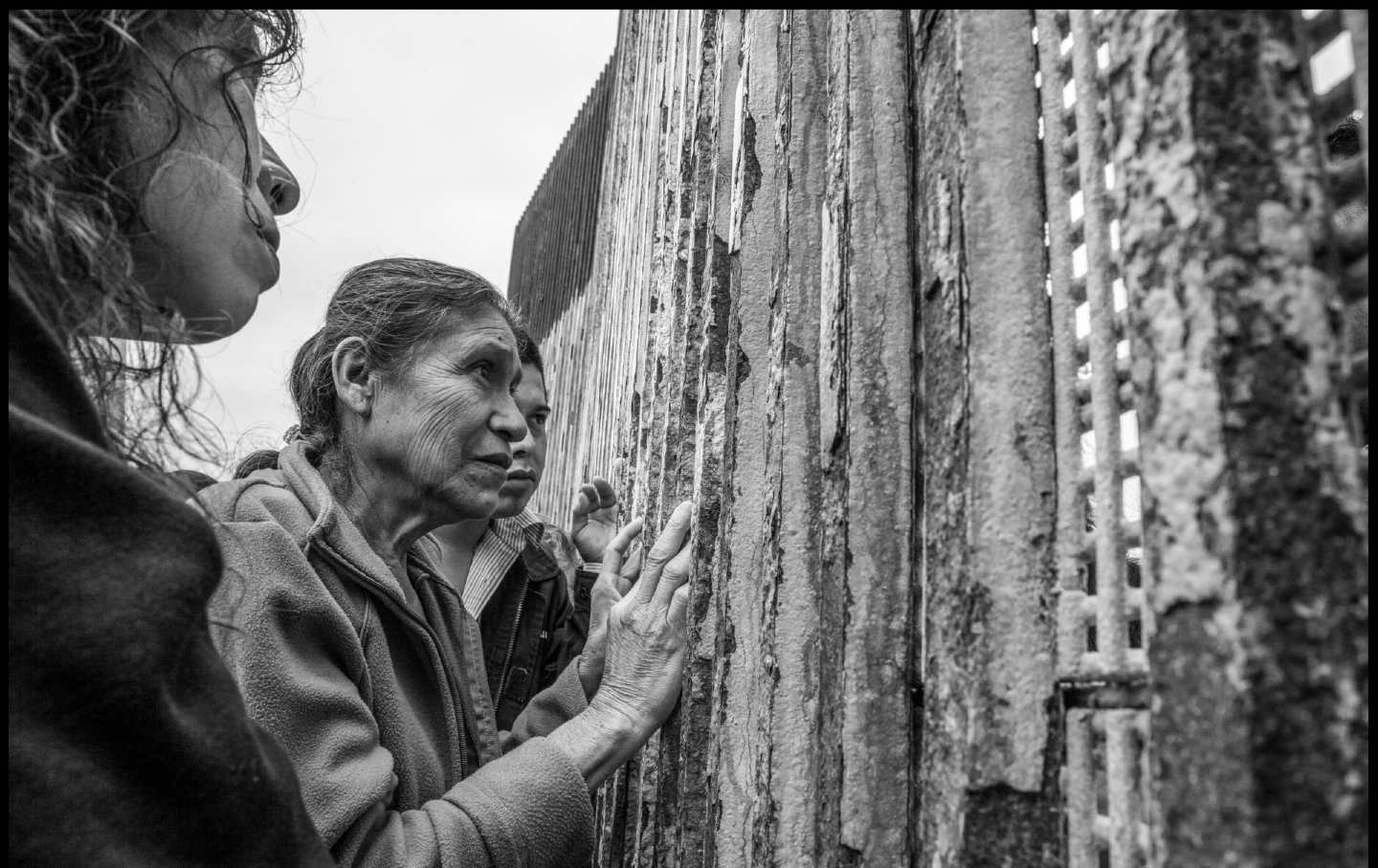
A Movement-Building Strategy for All Workers A Movement-Building Strategy for All Workers
Why we need a freedom agenda.
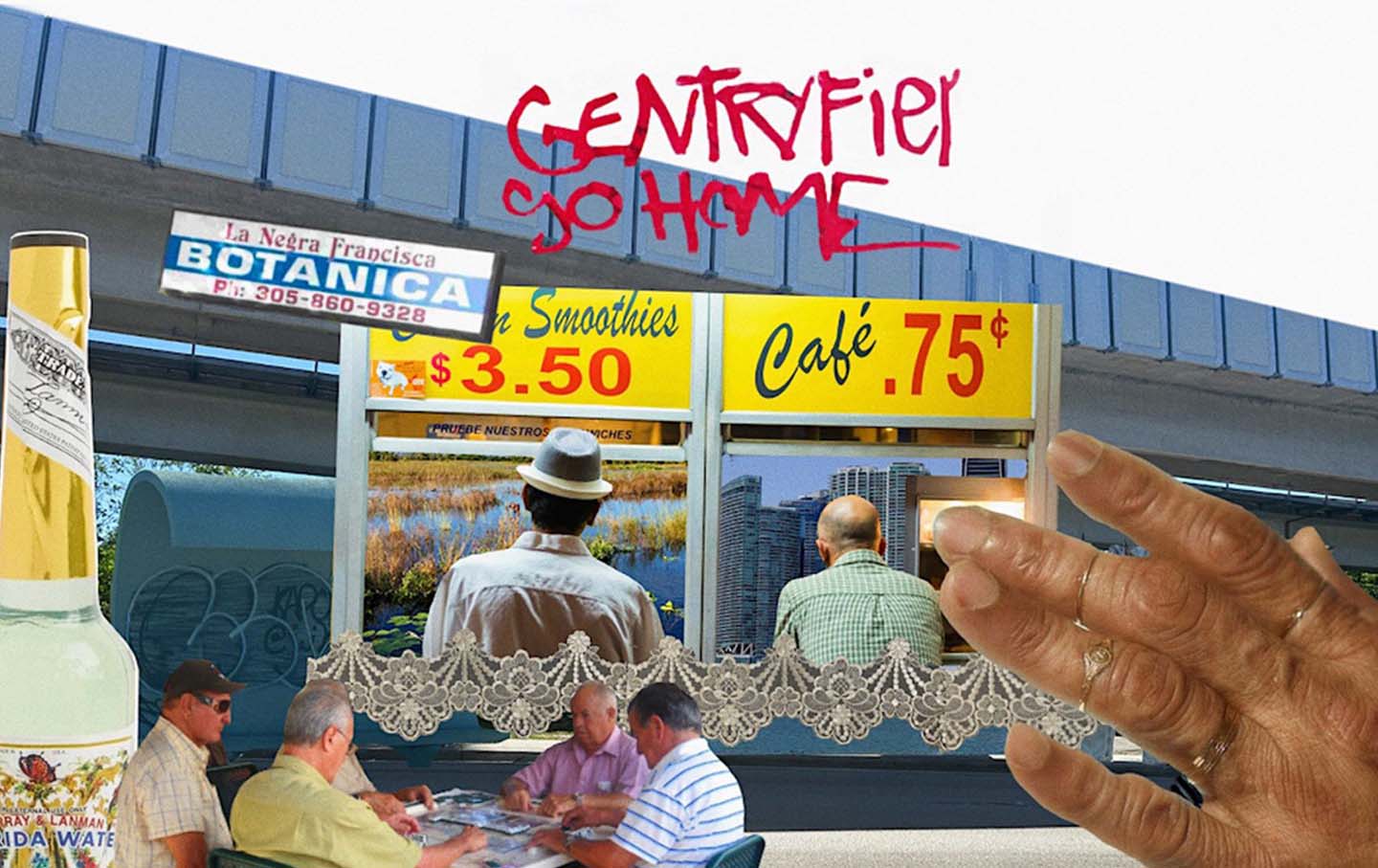
Gentrifier Go Home Gentrifier Go Home
Gentrification fuels displacement and dismantles communities.
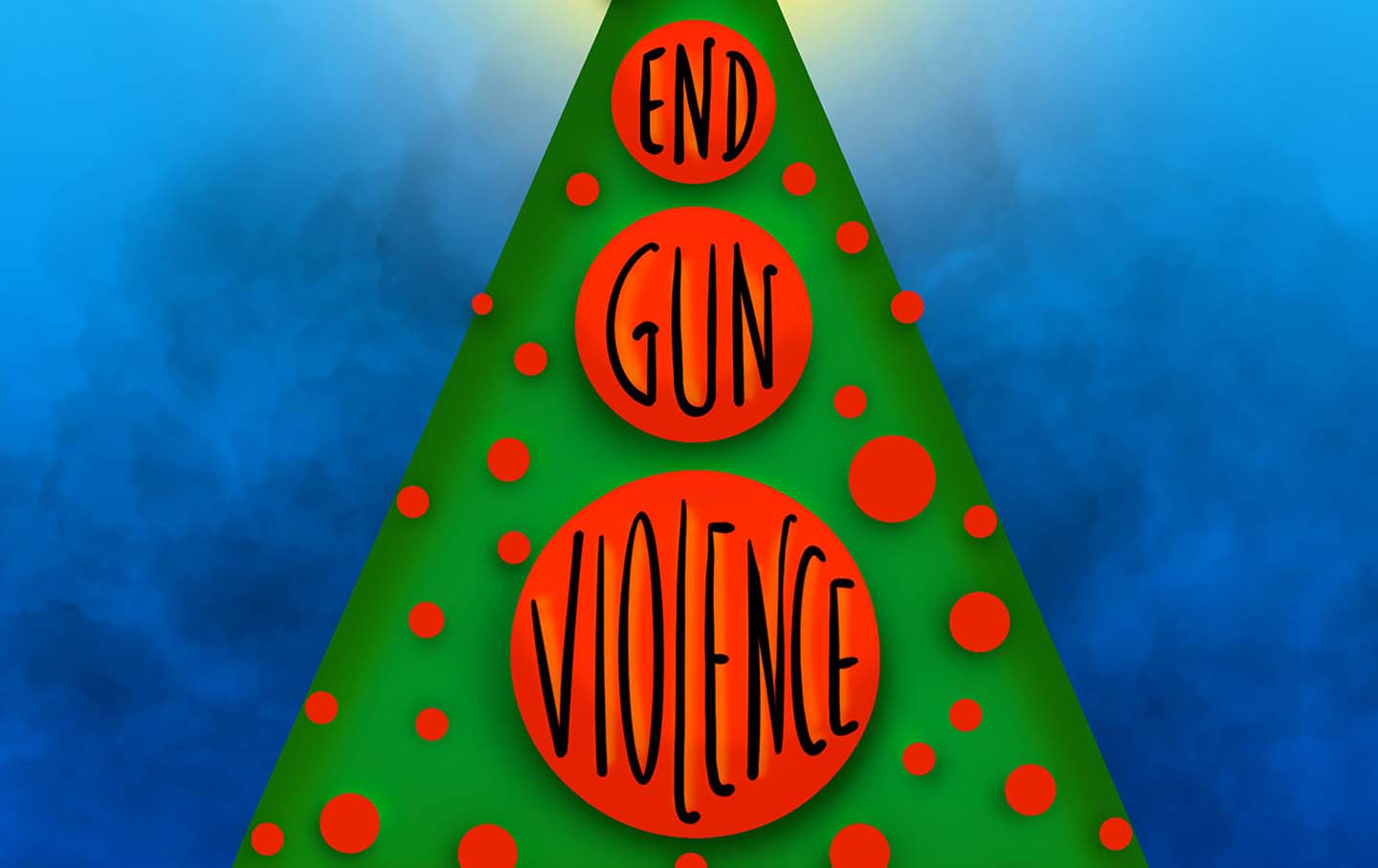
Christmas Wish Christmas Wish
The toll is staggering: In 2024, gun violence in the US resulted in 40,886 deaths and 31,652 injuries.


